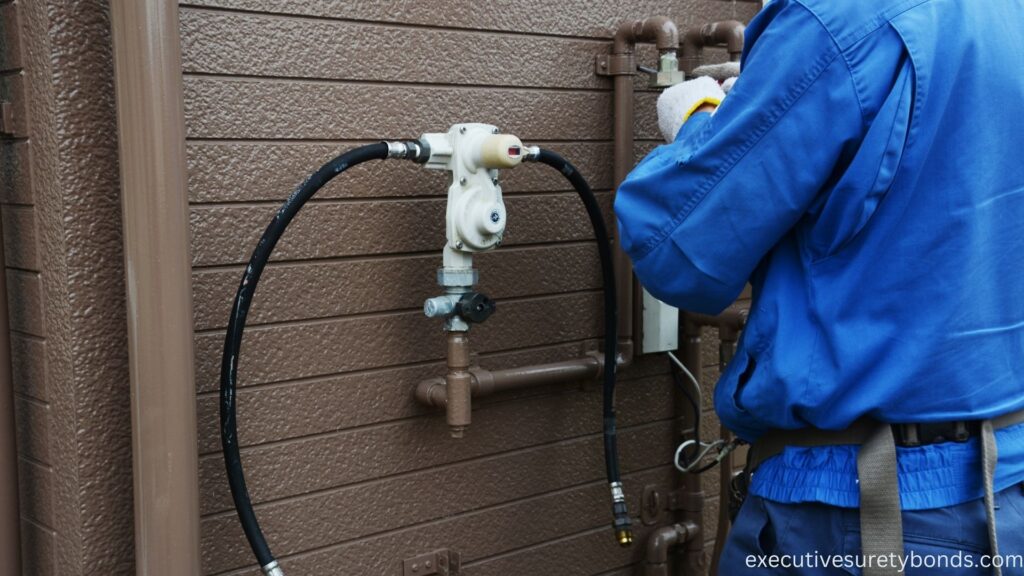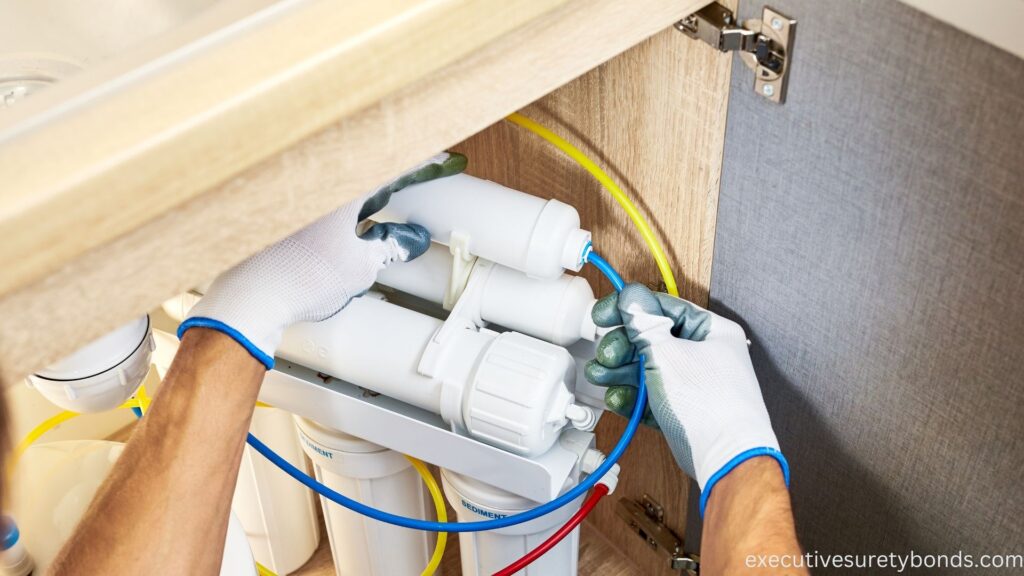Introduction to the Louisiana Right-of-Way – Installation of Water, Gas, or Sanitary Sewer Lines Bond
In the state of Louisiana, many critical infrastructure projects involve the installation of water, gas, or sanitary sewer lines. These pipelines are essential for providing communities with clean water, efficient gas services, and proper wastewater disposal. But have you ever wondered how the state ensures that these projects are completed responsibly and safely? The answer lies beneath the ground and is supported by the Louisiana Right-of-Way – Installation of Water, Gas, or Sanitary Sewer Lines Bond. In this article, we’ll dig deep to uncover what this bond is, why it’s important, and how it helps maintain the infrastructure beneath our feet.
Understanding the Louisiana Right-of-Way – Installation of Water, Gas, or Sanitary Sewer Lines Bond
Picture a bustling construction site in Louisiana where workers are laying down pipelines for water, gas, or sanitary sewer systems. Before such projects can commence, the contractors must obtain something called the Louisiana Right-of-Way – Installation of Water, Gas, or Sanitary Sewer Lines Bond. This bond serves as a guarantee to the state government and the public that the project will be carried out responsibly and in accordance with regulations.
The primary purpose of this bond is to ensure that contractors adhere to the rules and regulations governing the installation of these essential utility lines. It acts as a safety net, offering financial protection in case the contractor fails to complete the project or violates any established guidelines.
Why Does the Louisiana Right-of-Way – Installation of Water, Gas, or Sanitary Sewer Lines Bond Matter?
You might wonder why such a bond is necessary for construction projects. Can’t contractors simply follow the rules without it? While most contractors are responsible, the bond offers several crucial benefits.
Consider a situation where a contractor fails to complete a project as agreed or disregards safety regulations, potentially putting public health at risk. Without the bond, the state and the public might incur significant costs and face safety hazards. However, with the bond in place, it ensures that the contractor is held accountable and financially responsible for any project shortcomings or regulatory violations.
Moreover, the bond encourages contractors to uphold high standards. Knowing that there are financial consequences for neglecting safety measures or failing to complete a project, contractors are motivated to prioritize the well-being of the community and the successful completion of infrastructure projects.
The Impact on Infrastructure Safety and Community Well-Being
The Louisiana Right-of-Way – Installation of Water, Gas, or Sanitary Sewer Lines Bond directly affects infrastructure safety and the well-being of the community. It ensures that projects are executed with care, adhering to safety guidelines and regulations. This, in turn, safeguards public health and minimizes potential disruptions caused by incomplete or poorly executed projects.
Imagine a scenario where utility line installations are carried out without proper oversight or adherence to safety measures. Such situations could lead to accidents, environmental hazards, and costly repairs. The bond helps prevent such scenarios by providing a financial safety net and ensuring that contractors prioritize safety and compliance with regulations.
Conclusion
In conclusion, the Louisiana Right-of-Way – Installation of Water, Gas, or Sanitary Sewer Lines Bond is more than just a legal requirement; it’s a symbol of responsibility, accountability, and safety. It ensures that infrastructure projects in Louisiana are executed responsibly, adhering to regulations and prioritizing the well-being of the community. So, the next time you turn on your tap, cook with gas, or flush your toilet in Louisiana, remember that the Louisiana Right-of-Way – Installation of Water, Gas, or Sanitary Sewer Lines Bond played a vital role in ensuring the reliability and safety of these essential services.
Frequently Asked Questions
Does the Louisiana Right-of-Way Bond cover environmental remediation costs in case of accidental contamination during pipeline installation?
The Louisiana Right-of-Way Bond primarily focuses on ensuring the responsible installation of water, gas, or sanitary sewer lines. While it may address certain compliance and safety aspects, it may not specifically cover environmental remediation costs in the event of accidental contamination during installation. Contractors involved in projects with potential environmental impacts should explore additional insurance or bonding options specific to environmental liabilities to ensure proper coverage in such situations.
Are there bond requirements for maintenance and repairs of existing utility lines in Louisiana?
The Louisiana Right-of-Way – Installation of Water, Gas, or Sanitary Sewer Lines Bond primarily applies to new installations and construction projects. Maintenance and repair activities for existing utility lines may have their own bonding or permitting requirements, depending on the nature of the work and the location. Contractors performing maintenance or repairs should inquire about any specific bonding or regulatory requirements that apply to their projects to ensure compliance with state regulations.
Can the bonding amount for the Louisiana Right-of-Way Bond be adjusted based on the scope or size of the utility line installation project?
The bonding amount for the Louisiana Right-of-Way Bond is typically determined based on the nature and scope of the specific utility line installation project, as well as any applicable state regulations or requirements. Contractors should work with local authorities or regulatory agencies to determine the appropriate bonding amount for their projects, as it may vary depending on factors such as project size and potential impact on public infrastructure.

